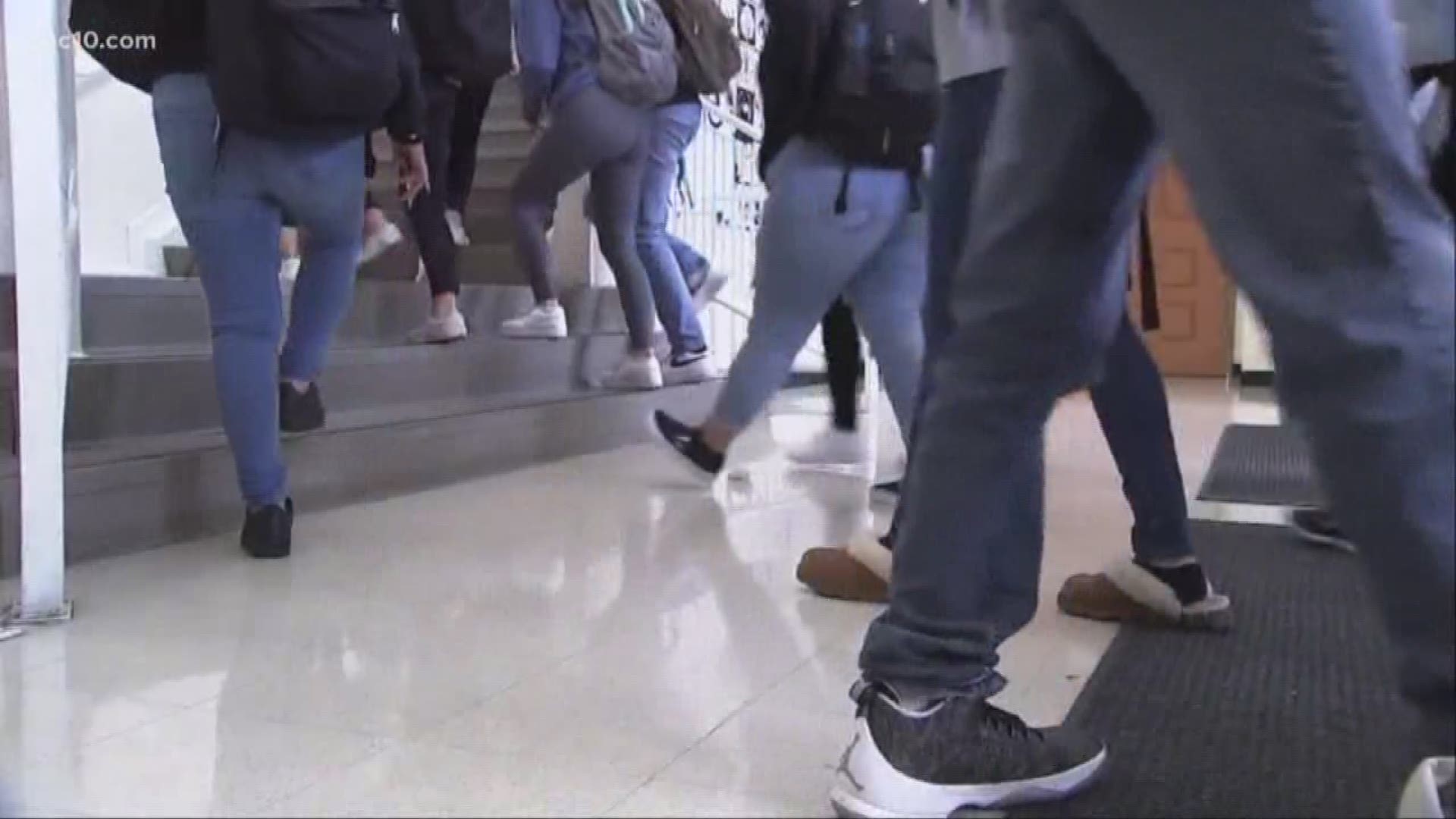STOCKTON, Calif — "How are you feeling? No really?"
When was the last time you checked in and asked that question to your teen? We all know the teen years can get you a snarky answer to that question, but doctors say having that conversation — and really getting an honest answer — could save your kid’s life.
This is especially important during the time of social media, according to Maureen Schroeder, the President of The California Association of School Psychologists
"Our children, our students are not without a phone on their hand," Schroeder said. “It's like a quick — instant 'Oh this is what's happening," Schroeder said. "Social media really raises a student’s anxiety and with anxiety also comes some depression."
The Center for Disease Control says that suicide is one of the leading causes of death for teens and young adults. It is an issue that school psychologists want to tackle early on, Schroeder said.
READ MORE:
"We're really trained in bringing together what's happening at school and what's happening at home, and kind of developing an intervention plan for us to work with teachers and parents to address our student’s needs," Schroeder said.
In 2018, California emergency rooms admitted for mental health more than 84,500 people between the ages of 13 and 21 years old — a 42% increase from 2012, according to a Kaiser Health News review of data from the state’s Office of Statewide Health Planning and Development.
The number is a top reason Schroeder wants to reinforce to parents that school psychologists exist and reach out for help before students need to be admitted to the hospital.
So what should you watch for to see if your child or teen may be having trouble coping? Here’s what Schroeder says:
- Watch out if they become withdrawn and stop or limit hanging out with friends or family more than before.
- Watch for spending even more time than usual on social media.
- A decrease in grades is another red flag.
If you notice these signs in your kid, and you think something is off, talk to them and try reaching out to a school counselor or psychologist for help.
“Contact their schools and know who their pupil personnel services are,” Schroeder suggests. “We are there, and we can provide consultations with them and talk about some of the other signs."
Follow the conversation on Facebook with Keristen Holmes.
READ MORE FROM KERISTEN HOLMES:
FOR NEWS IN YOUR COMMUNITY, DOWNLOAD THE ABC10 APP:
►Stay In the Know! Sign up now for ABC10's Daily Blend Newsletter
WATCH MORE: Vaping: Hooking a New Generation, Part Two



